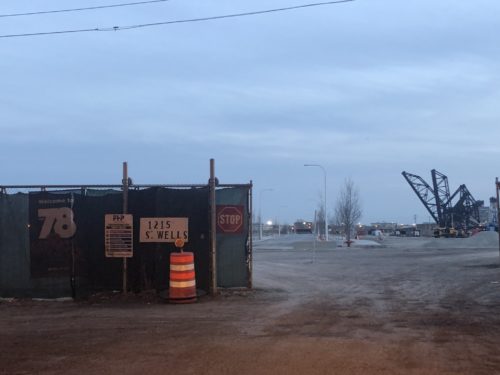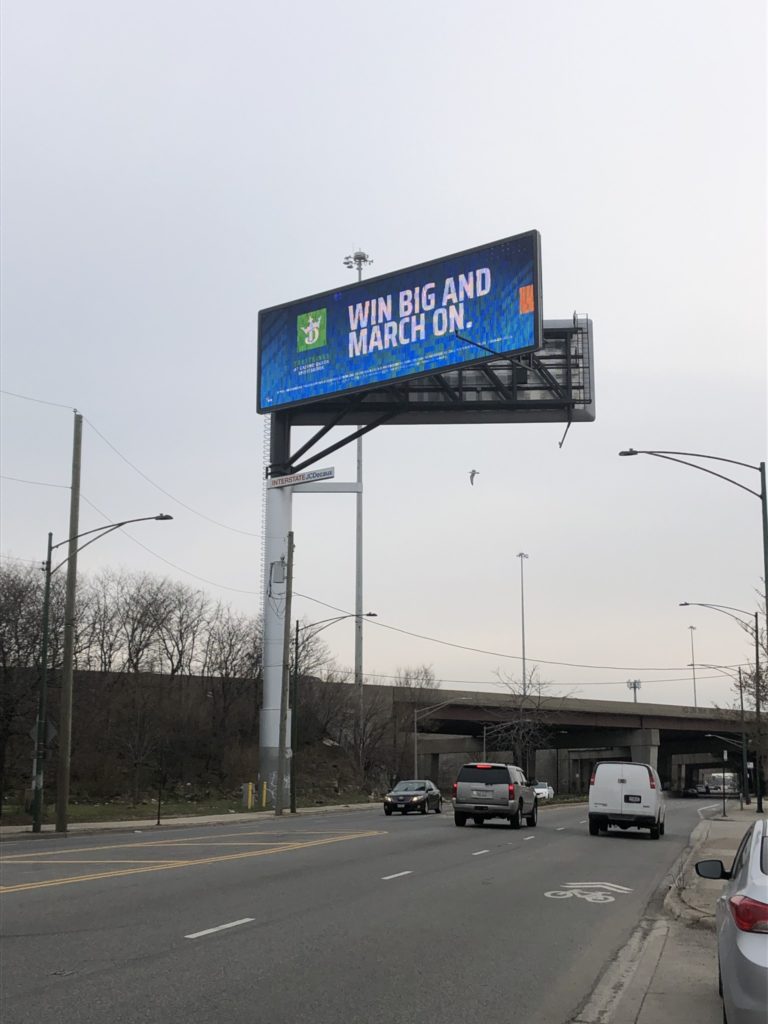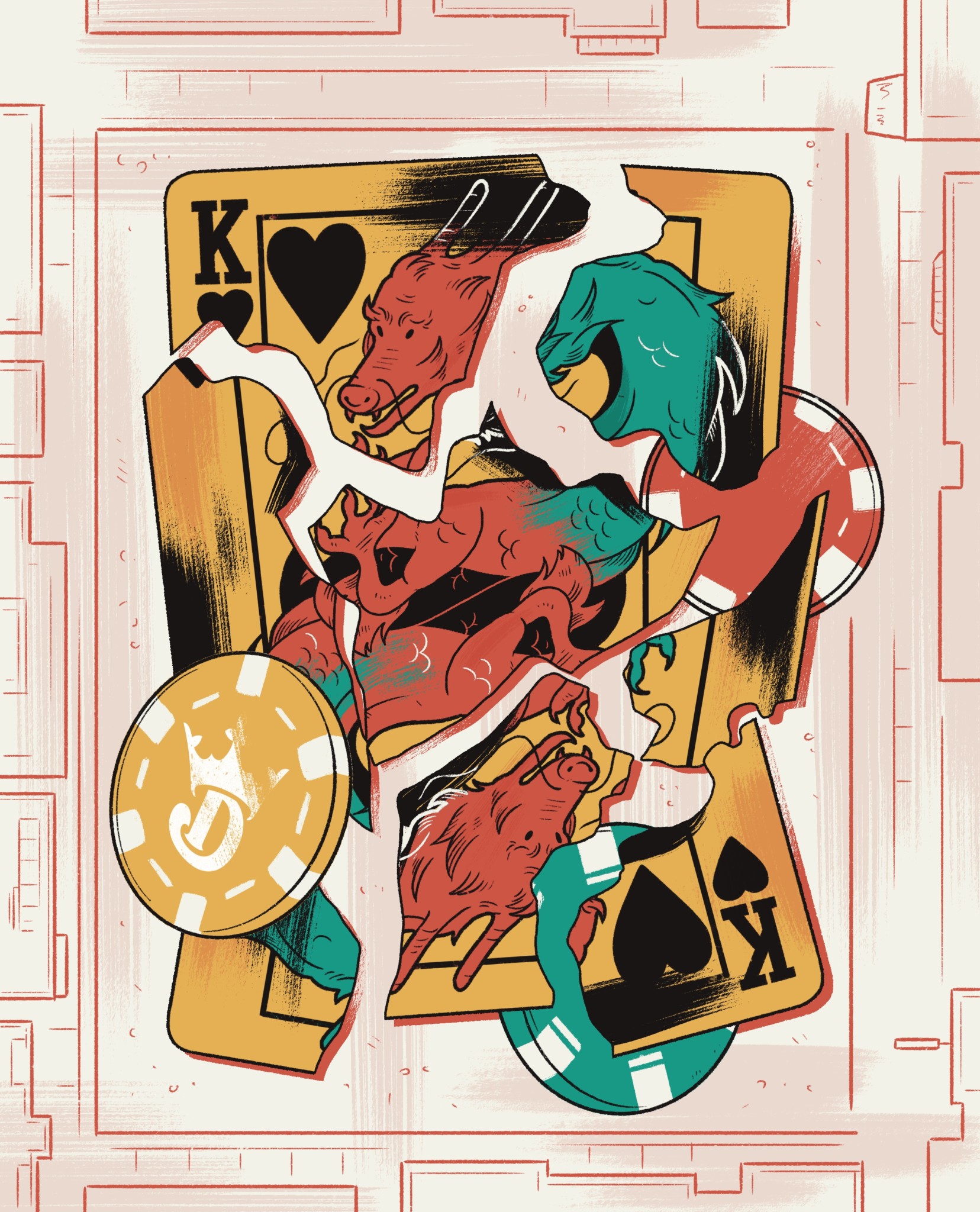Walk along Roosevelt Road just east of the Chicago River, and you’ll see construction commencing on a road. It’s part of “The 78”–a megadevelopment so named because Related Midwest, the developer for the project, is positioning it as the future seventy-eighth neighborhood of Chicago.
Bordered by Ping Tom Park to the south and Clark Street to the east, the site is slated to be a mixed-use development, with a river park, residences, a water taxi stop, and the Discovery Partners Institute campus for tech education and R&D. It’s also now possible that it will be considered as the site of a future Chicago casino, which was approved as part of the 2019 Illinois Gambling Expansion Act.
In August 2020, Chicago Mayor Lori Lightfoot put out a non-binding Request for Information for the casino, asking existing casino operators to weigh in on what recommended amenities and how much acreage and infrastructure it would need. Related Midwest and Rush Street Gaming, which runs casinos in Pittsburgh, Philadelphia, Schenectady, and—closer to home—Des Plaines, were among the nearly dozen respondents to the request. This puts the 78 site in the mix. There’s no certainty that Related Midwest and Rush Street Gaming will respond in the next phase to the mayor’s Request for Proposals, which Crain’s Chicago Business reports may begin in April, but sources say it’s likely that they will.
The casino will affect the whole city, and should the 78 site be proposed and chosen, there will be long-term impacts on surrounding neighborhoods, including Pilsen, the South Loop, and Bronzeville. Most immediately, it would affect Chinatown, which will border the 78 to the south, and a road that is currently being constructed will connect the development to the heart of the neighborhood, where it is common to see billboards for casinos, often in Chinese. Before the pandemic, several different casinos outside the city chartered shuttles to pick up passengers in Chinatown throughout the day, seven days a week.
What could a casino mean for the community if it were at the 78? Eunice Liao runs the Problem Gambling Program at Pui Tak Center, a church-based community center in Chinatown. She says her program doesn’t focus on social gamblers, but on educating people who have had their lives impaired by gambling. A casino at the 78 “may draw in people who are currently going to Indiana, and/or struggle with gambling issues,” she said. But as for whether it will “turn” people from social gambling to disordered gambling, she can’t say for sure. She recommends that the state and the Illinois Gaming Board fund studies to accurately assess what the impact would be, including on the next generation. She says it may take time to observe and evaluate.
A 2019 University of Massachusetts Boston report by Carolyn Wong and Giles Li, titled “Talking About Casino Gambling: Community Voices from Boston Chinatown,” notes that it’s necessary to “challenge erroneous notions that reify culture by depicting Chinese as ‘gamblers.’” The report highlights the importance of distinguishing between the popularity among Chinese immigrants of playing Mahjong in community spaces and homes and the commercialized casino setting. “Playing Chinese themed table or electronic machine games in casinos can easily heighten the risk of addiction,” the report continues, “especially when fast repeat play is a feature of electronic games, sophisticated marketing messages encourage players’ dreams of huge winnings, and free drinks are served.”

The Midwest Asian Health Association (MAHA) conducted a survey of gambling trends in the Asian Community in the summer and fall of 2020. Lina Xie, the substance abuse prevention program coordinator at MAHA said that of roughly 285 respondents, over fifty percent believe that there is an issue with problem gambling in Chinatown.
The Illinois Department of Human Services (IDHS) is currently undertaking the first-ever statewide needs assessment to gather data about the impact of at-risk and problem gambling in Illinois. Patrick Laughlin, deputy director of communications for IDHS, said that the needs assessment “will help IDHS to make data-driven and evidence-based decisions about how to direct resources.” The results from the needs assessment are expected to become public in the fall of 2021. However, this study does not look at the potential effects a casino within Chicago’s city limits may have on increasing problem gambling.
Some community leaders, like Grace Chan McKibben–the executive director of Coalition for a Better Chinese American Community (CBCAC), which came out of a coalition of Chinatown organizations who fought over twenty years ago to regulate how many casino buses could come to Chinatown and where they could pick up passengers, are clear. “We don’t want a casino to be located closer and be easier for residents to get to.”
Neo Li, a shopkeeper on Wentworth says he’s supportive of the 78 in general, but concerned by the proximity of a possible casino to Chinatown. In his opinion, it would harm the community more if you can walk to the casino than if it was farther away. He knows people who ask him for money to pay off their gambling debts. “You can’t stop when you go to a casino.” He’s seen it damage people’s relationships. “People don’t take care of their family, kids, all the money goes to the casino,” he said.
He’s also concerned that having a casino nearby would increase crime, especially robberies. Chan McKibben said safety is a number one concern for residents, especially in light of a fatal carjacking in December 2020. There is also a history of residents being robbed after having won at the casinos.
In addition to these instances, there are national trends that show increases in 911 calls in the first few months of a new casino opening in an area. Rush Street Gaming’s Rivers Casino in Des Plaines is the most recent casino to open in the Chicagoland area and fits the trend. A community post on Patch.com quotes Mike Kozak, acting police chief at the time: “Officers responded to 7,560 calls in the sixth ward in 2011 [the year it opened], with 681 of those calls to Rivers Casino.” This is compared to an annual average of 6,822 calls in the city’s sixth ward from 2009 to 2011.
Some Chinatown community leaders are worried that safety concerns a casino could bring would prompt a greater police presence in the area surrounding the 78. “We don’t need more police to be patrolling,” said Consuela Hendricks, co-founder of People Matter, a Chinatown-based political education organization.“More numbers of police does not solve the root issues.” She added that a way to mitigate this kind of crime is to ensure that all people have affordable rent and higher paying jobs.
Rudy Pamintuan, founding director and COO of Diversity Gaming Solutions, said he’s hopeful that a Chicago casino would provide new jobs. But Angela X. Lin, another co-founder of People Matter, said, “In surveying our members, we’ve found that more low-wage jobs in food and beverage are not the kind of jobs people want.” Lin said that people have expressed interest in training to become interpreters or bilingual teachers in the community. Hendricks worries that these jobs would only change the quality of life slightly: a job in a casino “might offer you a way to survive, but we want you to thrive.”
Pamintuan disagrees. “When it comes to workforce development, it’s not a one-size-fits-all, some people want to do retail, some want to do IT, it’s a matter of creating exposure and access to opportunities.”
Pamintuan adds: “Dealers make a lot of money, and I know dealers who have been able to travel the world with their profession.” According to the employment website Indeed.com, the average casino dealer’s hourly wage in Illinois is $16.96, and average daily tips are $200.
Another shopkeeper on Wentworth who didn’t want to give his name said there are pros and cons to the casino. He sees that the city needs revenue and says if there was a casino at the 78, he said, “maybe it would attract more tourists.”
Neo Li, the shopkeeper who worries about the casino’s proximity, said he’s familiar with the argument that it will be better for Chicago if there’s a casino in the city, rather than people taking their money to Indiana and playing there. But he asked, “where will the money from the casino really go?”
Two major factors affecting this casino, tax structure and how the revenue will be spent, have been decided without direct community input. The Sun-Times reported that as of June 30, 2020, the Illinois General Assembly lowered the effective tax rate from the Chicago casino from approximately seventy-two percent to forty percent, because a gaming consulting firm claimed this was too “onerous.”
Jim Landers, an associate professor of clinical public affairs at the Ohio State University, co-authored a 2016 paper called “The Responsiveness of Casino Revenue to the Casino Tax Rate,” which looked at how both the number of people who entered Illinois casinos and how much they wagered between 1997-2008 fluctuated in response to an increase on the tax the casino paid on AGR (wagering) and admissions.
The paper indicates that an increase in taxes on wagering and admissions led to fewer people going to the casinos, and betting less once they were there. A decrease in wagering and admissions taxes led to an increase in the numbers of entrants and the amounts wagered. Landers said whether or not the casino will be profitable depends on many factors, including location and how well it can compete with video gambling and casinos in Northwest Indiana.
Any taxes the City would collect from a casino have already been spoken for. Mayor Lightfoot is required to use the revenue to fund the firefighter and police pension fund, a decision that was made by her predecessor Rahm Emanuel, says Amanda Kass, associate director of the Government Finance Research Center at the University of Illinois at Chicago.

According to Kass, having the tax money from the Chicago casino go towards the police and firefighters pension would be a dedicated revenue stream that could free up money from the rest of the City budget.
“If it ultimately happened that a casino was housed in the 78, we want the revenue to go towards affordable housing and supporting public schools in Chinatown, Bridgeport, and surrounding areas,” said Chan McKibben of CBCAC, ”including the high school we have been pushing for the past three decades.”
In addition to wanting to be consulted about how to reinvest in the community, Chinatown residents and community leaders have expressed concerns about the lack of communication around the planning of the 78. The website for the 78 states that since 2017, Related Midwest has introduced the 78 at nearly fifty community meetings and events. “An ongoing dialogue is paramount to creating Chicago’s next great neighborhood, which doesn’t happen without input and feedback from residents,” the website claims.
Eunice Liao of Pui Tak highlighted the difficulty in reaching this mostly immigrant community to get that feedback. She remembers at the end of a webinar she hosted, someone asked whether the community could say no to a casino being located there.“Obviously they were not the ones included in the conversation,” she says. “To be included in the conversation, it’s not easy.” She attributes it to language barriers and a lot of residents not having familiarity with the internet or Facebook.
The Coalition for a Better Chinese American Community put on several events in 2019 to raise awareness among the community about the gambling expansion bill. Chan McKibben said: “We want Related Midwest to work more closely with the community, to seek community input in every step of their planning. The 78 itself already poses great gentrification and displacement risk to the community. Their contemplation of adding a casino makes this even more concerning.”
You can access and participate in the IDHS survey of frequent gamblers at bit.ly/ILGamblingSurvey.
Lynnea Domienik is a freelance audio producer and reporter. She lives in McKinley Park. This is her first article for the Weekly


A casino at Pui Tak Park would mean eliminating travel time, bus exhaust pollution, and provide greater convenience to Chinatown’s residents. It may also attract more patronage to Chinatown’s many restaurants, especially if a courtesy conveyance were in the mix, back-&-forthing between the casino and the restaurant clusters.